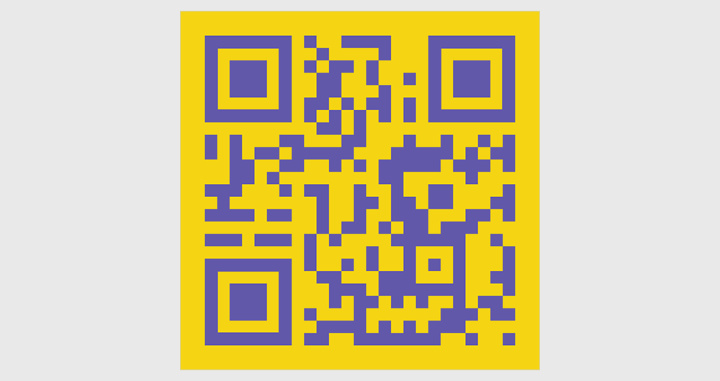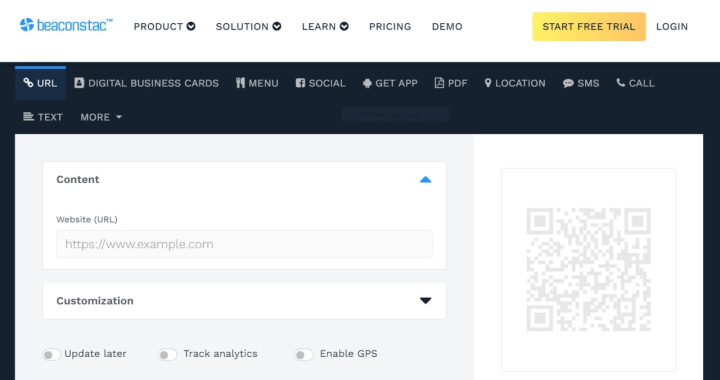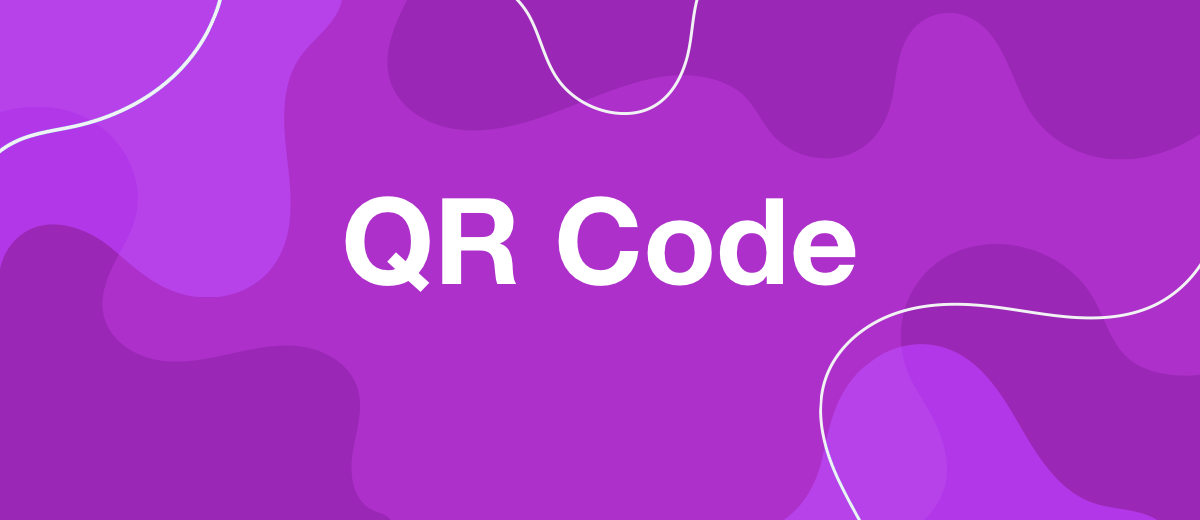What is a QR Code And How to Create One
We will tell you about a useful tool that can help you run your business. What QR codes are, who invented them and how to use them — read about this and more in our material.
Contents:
1. What is a QR code
2. A Brief History of QR Codes
3. Using QR codes in business
4. How to read QR code
5. How to create a QR code
6. Conclusion
What is a QR code
QR code (Quick Response code) is a graphic label that stores certain data. The information is encoded in such a way that it can be read by cameras, scanners and other optical sensors. Therefore, QR codes are used to quickly transfer data to smartphones and other gadgets.
This label is a rectangular contrasting image with a border and an internal pattern resembling a labyrinth of pixels. There are squares in the corners that help the sensor choose the right direction for reading data. QR codes are usually black and white, but other colors can also be used.

This form of storing information can exist physically in the form of a sticker or drawing on an object. Or maybe digital — in the form of a regular image in the memory of a computer or other electronic device.
You can encode a wide variety of data in a QR code: from text to melody. The capacity of a standard QR code is up to 3 KB of information.
Due to the coding features, even with significant damage to the tag, its data can remain intact and successfully read. This increases the reliability of the QR code as a form of information storage.
A Brief History of QR Codes
QR codes were invented in Japan in 1994. Denso Engineering Corporation needed a technology that allows you to attach various digital data to auto parts.
Previously, barcodes were used for this purpose. But the amount of data that could be encrypted in them was no longer enough. Therefore, engineers replaced barcodes with more capacious QR codes.
The new tags made it possible not only to encode more data, but also to store images and sounds. And the addition of special corner squares made it possible to read information from any angle.
- Automate the work of an online store or landing
- Empower through integration
- Don't spend money on programmers and integrators
- Save time by automating routine tasks
Over time, QR codes began to be used to label a wide variety of products around the world. And with the spread of mobile devices, Denso technology began to be used in many other areas.
Using QR codes in business
In business, QR codes are actively used to quickly transfer various information to consumer devices.
Let's look at examples of objects that are usually tagged and data that can be stored in them:
- code on the cafe table — password for connecting to a public Wi-Fi network;
- code on the business card — contact phone number;
- In-app code — your password to quickly log in via another device
- code on the company's contact web page — geolocation data for Google Maps;
- code on the event website — date and time for the mobile calendar;
- the code on the promotional booklet is a coupon for a discount.
But more often than not, QR codes contain links that open sites with various information. The downside of this approach is that the user will not be able to view the encoded data without the Internet. But you can place much more data on the site than the QR code can accommodate. In addition, the site can be interactive and offer various functions: ordering goods, paying, and so on.
Here are a few more examples, this time using links in QR codes:
- the code on the restaurant table — a link to the menu page on the establishment's website;
- code on the service website — a link to the page for downloading the mobile version in the App Store or Google Play;
- the code on the product packaging is a link to the manufacturer's website;
- the code on the flyer is a link to the purchase page;
- code on the museum stand — a link to the description page on the museum's website.
How to read a QR code
It is very easy to read the QR code. You just need to have the right device on hand. The cameras of most modern smartphones and tablets have a built-in scanner that quickly recognizes data encoded in tags. To do this, simply follow these steps:
- Turn your camera on.
- Point it over the QR code and wait a few seconds.
- Click on the link that appears on the screen.
If the screen doesn't respond to the code in any way, your device's camera may not be able to recognize these tags by default. In this case, you can utilize online web-based QR code scanner tools like qrscanner.net or you can download any QR code scanner as a separate app. Hundreds of such programs are available on the App Store and Google Play. To search the store, use the phrase “QR scanner”.
After downloading the app you like, launch it, point your camera at the QR code and click on the link that appears on the screen.
How to create a QR code
You can create a QR code using a free QR code generator like Beaconstac, QRCode Monkey, Bitly QRCode Generator, QR Stuff, ForQRCode or QRTiger. All of them are approximately the same. It takes a couple of minutes to code.

The process consists of the following steps:
- Specify the type of data: link, file, template for sending SMS, payment details, or other.
- Enter the data yourself. For example, if you chose a link in the previous step, enter the required URL.
- You can customize the look of the label: colors, logo, frame type, etc.
- Download the finished QR code in the form of an image in the desired format or print it out right away.
Conclusion
- A QR code is a graphic label that can store a variety of data, from text to melody.
- In business, QR codes are actively used to quickly transfer links, contacts, discount coupons and other information to consumer devices.
- You can read the QR code using your smartphone's camera. Just point the lens at it and click on the link that appears on the screen.
- You can create a QR code in one of the special services. Among them: QRCode Monkey, Bitly QRCode Generator, QR Stuff, ForQRCode and QRTiger.
Working with marketing and other Internet services involves many routine tasks: transferring leads from advertising channels to CRM, sending email or SMS newsletters, copying data between spreadsheets and so on.
But you can automate these and other workflows using our APIX-Drive platform. It is enough to connect your working services to it and set up data transfer — the system will take care of the rest for you. Try APIX-Drive, it's quick and easy!


